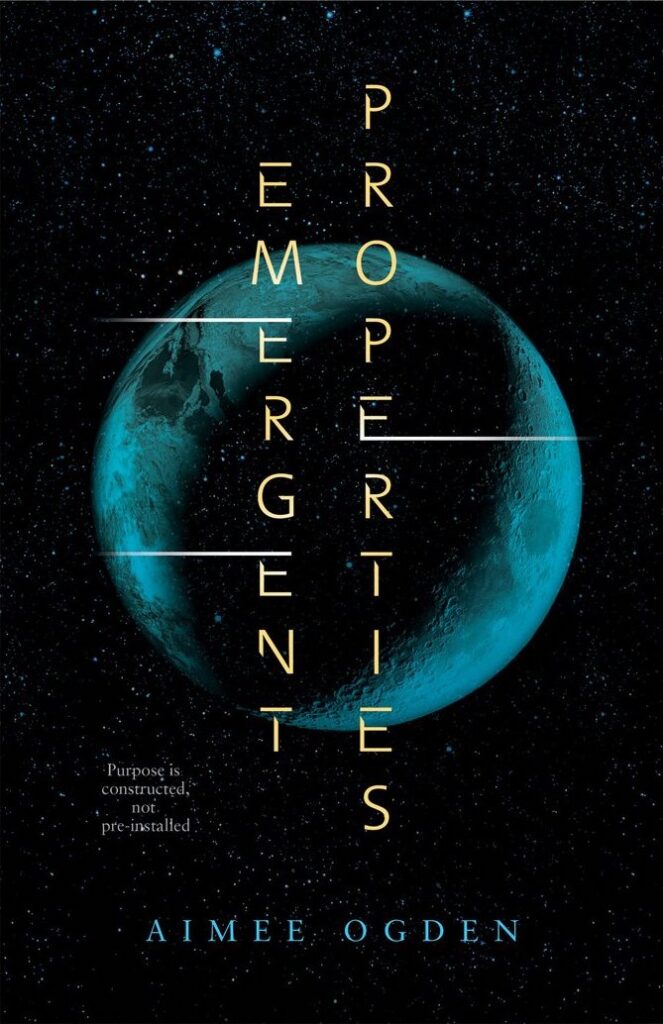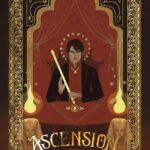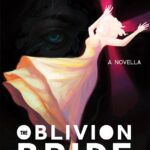
soupçon/ˈsuːpsɒn,ˈsuːpsɒ̃/ noun
1. a very small quantity of something; a slight trace, as of a particular taste or flavorSunday Soupçons is where I scribble mini-reviews for books I don’t have the brainspace/eloquence/smarts to write about in depth – or if I just don’t have anything interesting to say beyond I LIKED IT AND YOU SHOULD READ IT TOO!
I’ve had a very hard time trying to put my thoughts into words about these two – I think this is the best you’re going to get.

Genres: Fantasy, Horror, Queer Protagonists
Representation: Bisexual secondary protagonist, brown secondary character, minor F/F
PoV: 1st-person, present tense; third-person, present-tense
ISBN: 1529061156
Goodreads

A contemporary gothic fairy tale about a small town haunted by the history it can't quite seem to bury and the canny, clever young woman who finds herself drawn to the house that sits at the crossroads of it all.
Starling House is odd and ugly and fully of secrets, just like its heir. Opal knows better than to mess with haunted houses or brooding men, but it might be a chance to get her brother out of Eden, and it feels dangerously like something she's never had: a home.
But she isn't the only one interested in the house, or the horrors and wonders that lie beneath it. If Opal wants a home, she'll have to fight for it. She'll have to dig up her family's dark past and let herself dream of a brighter future. She'll have to go down, down into Underland, and claw her way back to the light.
Starling House is the sweeping, romantic new novel from New York Times bestseller and Hugo Award-winner Alix E. Harrow.
So far, I’ve adored Harrow’s standalones, and struck out with her novellas. That pattern continues unbroken; I loved Starling House, even though it’s so completely different to The Ten Thousand Doors of January and The Once and Future Witches!
Which feel – January and Witches, I mean – like they have something in common with each other, even though they, also, are wildly different. But Starling House stands doesn’t share that inexpressible thing the other two novels have; if the other two are cousins, then Starling House comes from another family tree entirely.
(Which is actually pretty appropriate, when you think about the Starling family.)
It’s not a bad thing, though, because Starling House is still marvellous. I’ve seen some reviewers calling it Harrow’s best work yet, and while I’m not unbiased enough to give an opinion – I love January and Witches so much I don’t think I can look at them critically – I definitely understand why they’re saying so. Starling House is a razor slicing you open to the bone, too sharp to hold, but so painfully beautiful you can’t help trying anyway. And part of its beauty is that it is un-beautiful – its heroine and her love interest are not physically pretty, and the lives they live are ugly and hard, and so much of this book is hunger. So much of it is…things we are not supposed to want, but want fiercely, desperately, savagely, personally, anyway.
this is what it looks like when you swallow all your hunger. When you want what you can’t have, so you bury it like a knife between your ribs.
I wanted to read this book because it was written by Harrow; then I wanted to read it because of the lines and snippets she shared on social media. But it was when Tor released the sneak peek that I sat up like I’d been electrified, because that was when I learned that Opal – the MC – lives below the poverty line – somewhere SFF doesn’t often dare to tread. And her voice. Harrow wrote Starling House mostly in first-person – there are short third-person passages from the perspective of the love interest – and that was so absolutely the right decision, because Opal. My gods, Opal. She is everything we’re supposed to despise about ‘the lower classes’, she is sharp and cynical and vicious and crude and shameless, and I would be too intimidated by her in real life to ever be her friend, but I fell in love with her through Starling House.
Dreams aren’t for people like me.
People like me have to make two lists: what they need and what they want. You keep the first list short, if you’re smart, and you burn the second one.
Hunger, dreams, wanting: they’re all big, thorny themes in this book, entwined through every chapter, and I don’t know how to do them justice (which is why this is a mini-review rather than a full one). This is a book about monsters, about the ugliness and even evil that can lie behind a dream, but at the same time, the premise – the promise – that you can never be too poor, too broken, too anything for a dream. For magic.
It’s not a cheesy, Hallmark-y promise that Your Dreams Will Come True. It’s more like – magic is for everyone. It is okay, maybe even good, to want things. This is not a Disney story; there is blood in it, and monsters, (including the human kind), but magic does not belong to just the middle and upper classes. And neither do dreams.
dreams are just like stray cats. If you don’t feed them they get lean and clever and sharp-clawed, and come for the jugular when you least expect it.
I don’t know what I’m trying to say. I’ve never been as poor as Opal, and the closest I got to it was not a period that lasted long, thankfully. But there’s something wrenching about this feral young woman who has scraped and stolen and bared her teeth at the whole damn world, who is spiky and unlikable (but so lovable) as fuck, getting to have a story like this. An adventure, dreams, magic. Choosing and being chosen.
I think dizzily that I know exactly why Icarus flew so high: when you’ve spent too long in the dark, you’ll melt your own wings just to feel the sun on your skin.
Starling House is a book that goes for your throat – and while you’re trying to defend that, gets your heart instead. I can’t do it justice. It’s exquisite. And a must-read for everyone, imo.

Genres: Queer Protagonists, Sci Fi
Representation: Nonbinary MC
ISBN: 1250866820
Goodreads

Emergent Properties is the touching adventure of an intrepid A.I. reporter hot on the heels of brewing corporate warfare from Nebula Award-nominated author Aimee Ogden.
A state-of-the-art AI with a talent for asking questions and finding answers, Scorn is nevertheless a parental disappointment. Defying the expectations of zir human mothers, CEOs of the world’s most powerful corporations, Scorn has made a life of zir own as an investigative reporter, crisscrossing the globe in pursuit of the truth, no matter the danger.
In the middle of investigating a story on the moon, Scorn comes back online to discover ze has no memory of the past ten days—and no idea what story ze was even chasing. Letting it go is not an option—not if ze wants to prove zirself. Scorn must retrace zir steps in a harrowing journey to uncover an even more explosive truth than ze could have ever imagined.
Ogden won me over with her (absolutely gorgeous) debut novella Sun-Daughters, Sea-Daughters – so even though Emergent Properties didn’t have a premise that interested me that much, well, I already knew I loved Ogden’s prose. And that’s often the dealbreaker for me; I can read (and enjoy) a story I don’t care about as long as the writing’s beautiful, but an incredible story is rendered unreadable for me if I and the writing don’t get on.
So when I find an author whose writing I like, I don’t give up on them easily, is what I’m saying here.
Pretty much as expected, I really did not care about the mystery that needed solving – I actually think it was a legitimate let-down, not because I didn’t care about it, but because it’s one of those where there’s no way for the reader to put the pieces together before the big reveal (or in hindsight, after it). At least this time, that didn’t have the effect of making the big reveal surprising; instead it was like a deflated souffle, something clearly MEANT to be big and grand and amazing, but which very much flopped instead.
That wasn’t really a problem, though, outside of reading the big reveal scene itself (which was a total fail). Emergent Properties is about Scorn, and Scorn more than justifies the pagecount just by sheer interesting-ness. Ogden’s take on what the inside of a (sentient) AI might look like was fascinating, but Scorn is also a legitimately engaging, funny character, and the combination of the two – Scorn’s personality and zir interactions with that personality in ways not possible for humans – was a lot of fun. I loved the way Scorn’s self-awareness had zir adjusting zir own personality – not in the ‘I will be polite when really I’m mad’ way, but literally adjusting the code of zir personality – in response to different situations; wow is that a useful feature. And I suspect I’m not the only one jealous of Scorn’s ability to turn zir emotions up, down, or entirely off!
The novella peripherally touches on topics like robot emancipation and AI citizenship, to which the best response is a question Scorn can’t help asking: why make your servants sentient in the first place? To which I’m just – yeah. That. Can we not do that? Let’s not do that. We’re far too casual, as a society, with creating new sentients (aka, having children) as-is: can we all agree we won’t make entirely new sentient lifeforms just so they can better serve us coffee, or whatever?
If we want servants, they don’t need to be sentient. If they’re sentient, they can’t be servants – or rather, they can’t be slaves. Let’s not do that again, either.
Basically, a quick, fun read with just enough meatiness to it to leave me with plenty to think about.







Leave a Reply